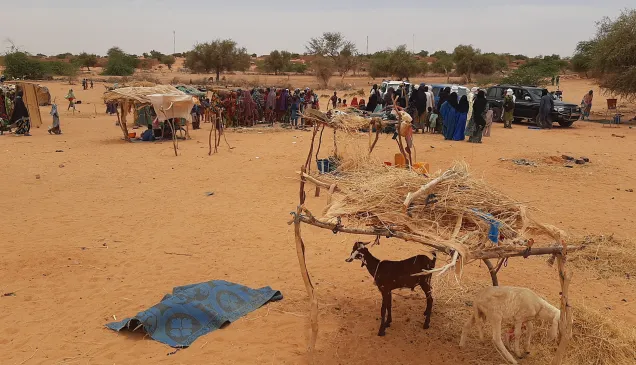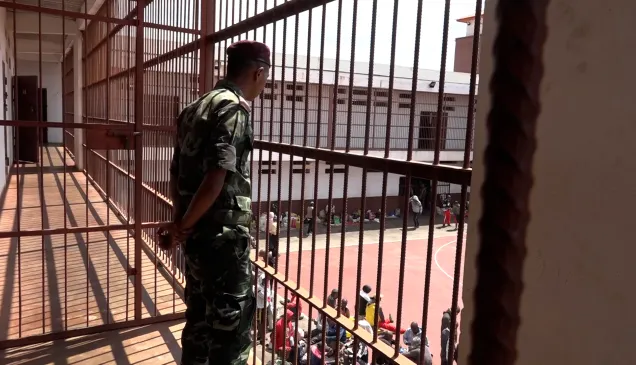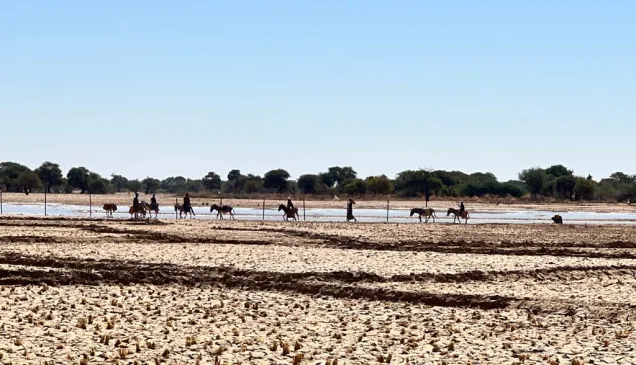Mali: ICRC activities, January – August 2014
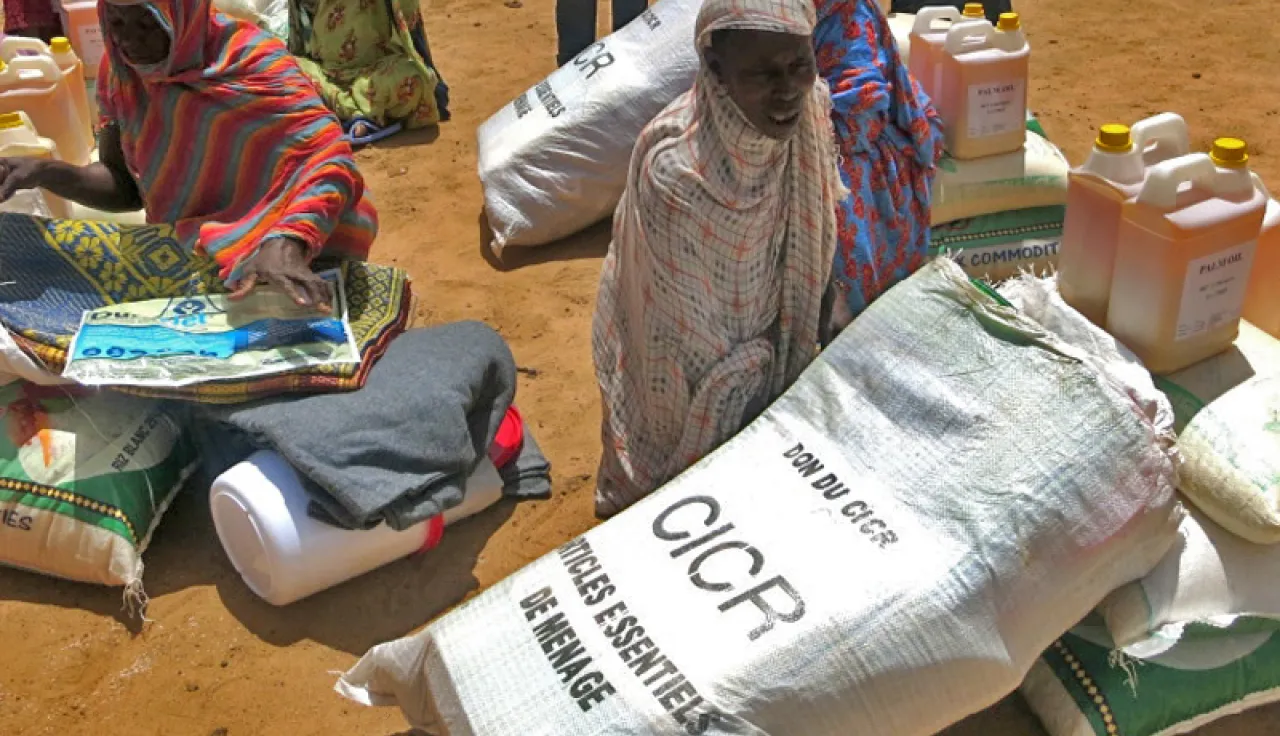
Promoting international humanitarian law
The ICRC promotes IHL among the Malian armed forces, international armed forces in Mali and other weapon-bearers. It also supports the authorities' efforts to ratify IHL treaties and transpose them into domestic legislation.
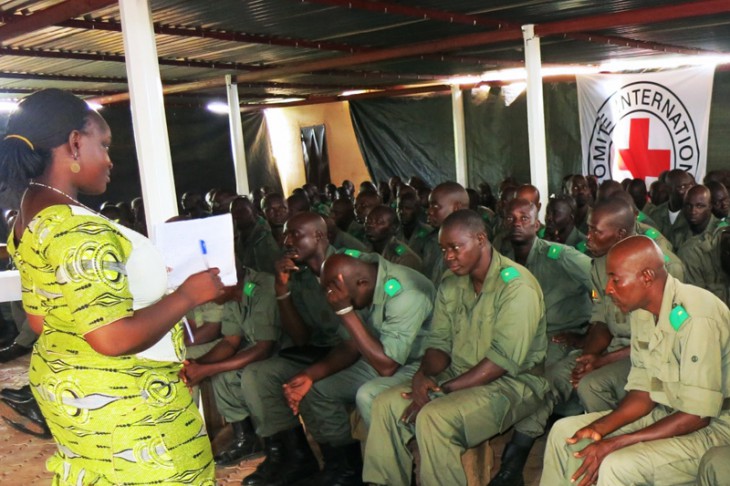
Between January and August 2014, the ICRC organized IHL awareness-raising sessions attended by 3,000 soldiers from the Malian armed forces, 200 members of armed groups and 400 soldiers from the United Nations Multidimensional Integrated Stabilization Mission in Mali (MINUSMA).
Detainee welfare
Between January and August 2014, the ICRC:
- visited 3,000 detainees in 18 places of detention (including people detained by armed groups after the fighting in Kidal in May 2014) and assisted the authorities in the care of people suffering from malnutrition who were detained in Bamako, Kati and Koulikoro prisons (including 28 cases of severe malnutrition);
- gave detainees the opportunity to restore or maintain contact with their families through 88 telephone calls and the exchange of 58 Red Cross messages;
- strengthened the Mali Red Cross family links service, which organized 2,272 telephone calls and exchanged 703 Red Cross messages, traced 27 people, and reunited 17 children with their parents who had become separated from their families as a result of the fighting.
Economic security
In order to respond to the most urgent needs of people affected by the fighting in Kidal in May 2014, the ICRC and the Mali Red Cross distributed 105 tonnes of food to more than 11,000 people displaced in Gao and Kidal, and household items to 620 families, of which 320 were displaced in Kidal and 300 displaced from Kidal to Gao.
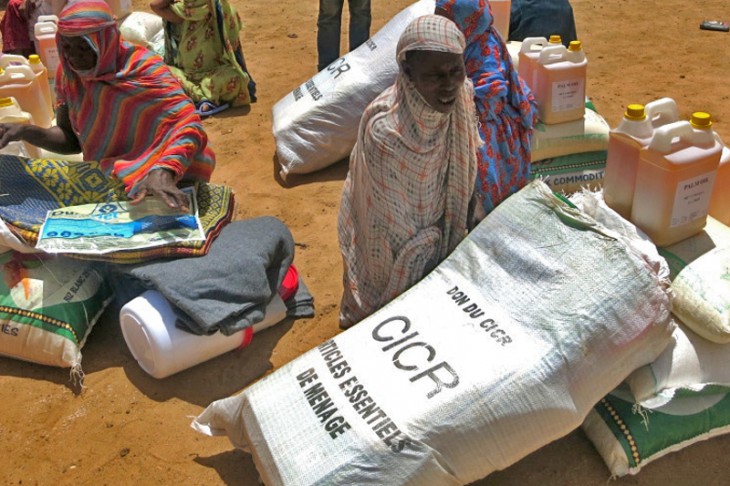
Emergency aid for displaced people returning home
Working with the Mali Red Cross, the ICRC also distributed basic necessities to 2,500 families who had returned to their homes from camps in neighbouring countries or elsewhere in Mali.
It also distributed 610 tonnes of various cereal seeds to over 215,000 people in the Mopti, Gao and Timbuktu regions.

Between January and August 2014, the ICRC:
- vaccinated some 1,350,000 animals against contagious bovine pleuropneumonia, small ruminants plague and pasteurella, and treated more than a third of those animals for parasitosis;
- carried out 'de-stocking': buying livestock (cattle, sheep and goats) at a good price from 5,400 herders, thereby giving them an income to provide for their families, and slaughtering the animals and distributing the meat (about 120,000 kg) to 18,000 vulnerable people, including female heads of household, detainees and malnourished children;
- paid 93,585,000 CFA francs to more than 12,500 people as wages for work in the community.
Health
The aim of the ICRC's health programme is to help people affected by conflict to access health care.
Between January and August 2014, the ICRC:
- continued to support three community health centres in the Timbuktu and Gao regions, and the Bourem health centre, thereby enabling 52,000 people to have 15,200 consultations (including over 1,700 prenatal consultations) and 17,000 children to receive their first dose of polio vaccine;

- sent more medical staff to Gao hospital; the team now consists of a project head, a surgeon, a doctor, two anaesthetists, a theatre nurse, four nurses, a midwife, a physiotherapist, and a pharmacy manager.
Gao Hospital in figures:
- 295 births;
- 750 outpatient consultations;
- 3,000 admissions, of which 400 were gynaecological and 400 surgical;
- over 600 operations;
- treatment for 97 people wounded by weapons, of whom 70 had been injured during the May 2014 fighting in Kidal.
Water and habitat
The ICRC is working hard to give people affected by the fighting access to drinking water and is also involved in building sanitation infrastructure and shelters.
Between January and August 2014, the ICRC:
- restored three water supplies and three village waterworks in the Mopti, Timbuktu and Gao regions, serving almost 80,000 people;
- repaired and restored the water supply network in Kidal;
- supplied 24,000 litres of fuel to Gao hospital to run its generator (i.e. 3,000 litres per month).
After the generators powering Kidal's water supply were damaged during the fighting in May 2014, the town's inhabitants were left without drinking water. The ICRC repaired the damaged generators and provided 23,000 litres of fuel to run them, thus providing some 300,000 litres of water per day.
Thanks to ICRC support, Kidal's water supply network is now operating at 70% of full capacity. They system produces 265 cubic metres of water per day for an estimated population of 18,000, i.e. an average of 15 litres of water per person per day.

